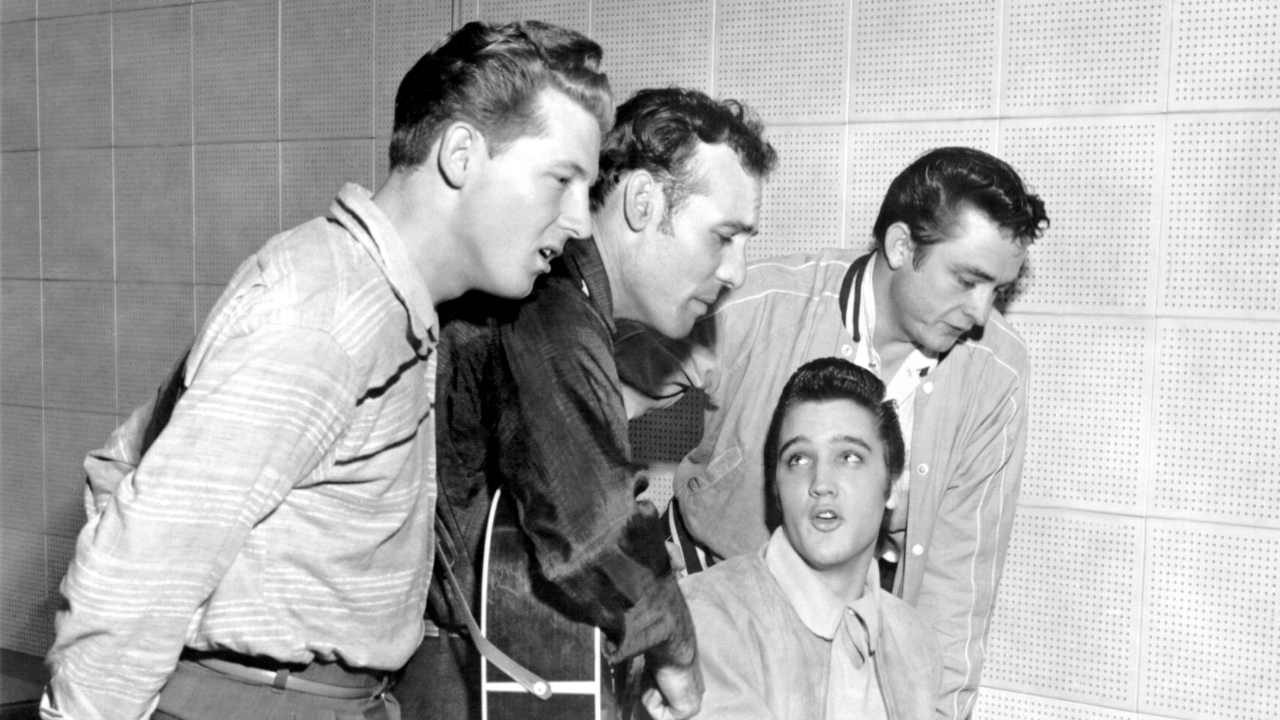
YouTube Series #3: Sun Records’ Rights Managements
IDOL began working with Sun Records in April 2020. Within a year, IDOL had managed to double the YouTube channel’s revenue, ending 2021 by exploding the targets set, with a five-fold increase in revenue. Created in 2008, the channel was lacking an audience, so the Audience Development team started by feeding it with content to attract subscribers. The efforts paid off as Sun Records saw a meteoric 14,000% increase in subscriptions, entirely organic, without any sponsorship.
The goal behind the partnership was to grow the audience and therefore the revenue, by making the label’s catalog official on YouTube. By delivering the catalog in audio-video, IDOL chose to exploit all the possibilities of the channel, with playlists, long versions of full albums, or lyrics videos… Over a second phase, IDOL proceeded to clean the catalog on YouTube Content ID via the rights management to solve rights conflicts.
Content creation at the heart of organic work
Pierre Boucard, Head of Audience Development, explains the work carried out on the Sun Records channel. “We started creating videos, using the masters and, to illustrate the videos, photos of artists provided by the label. Our team relied on the in-house team of developers to deliver the entire video catalog, i.e. 300 albums.
We provided the back-end developers with the necessary elements for their script, and via our Labelcamp tool, they delivered all the videos in one go to Sun records’ YouTube channel. A move that saved us a lot of time, and allowed us to go back and perfect the metadata, create lyrics videos, and full album videos.”
Unsurprisingly, the videos that work best are the hits, like Johnny Cash’s ‘Walk The Line’. The full album format is more strategic, as the viewing time is higher, which sends good signals to the algorithm that will push the channel accordingly.
Conflict resolution to generate revenue
The second growth area was conflict resolution. An essential part of the distributor’s business, just like optimizing the claims of the Blogotheque, this operation generates revenue for the labels. Note that 80% of the disputes that the distributor has to deal with are related to videos on YouTube.
Romain Bollini, Digital Rights Manager at IDOL, explains: “Where I come in is for conflicts, so mostly on YouTube. What happens is that via metadata or ISRC, YouTube will detect an identical reference on its platform, because two distributors will have delivered the same title, which represents a conflict on a number of territories. In that case, YouTube will freeze the revenue generated in those territories until the conflict is resolved and YouTube knows who to award the money to.”
The most complicated part is that Sun Records did own the global rights to its catalog, but in many territories, some songs had fallen into the public domain. Like in France, for example, where IDOL had no right to block them. The teams had already encountered this difficulty when working with Exceleration Music and the Ray Charles Foundation, and the public domain remains YouTube’s Achilles heel.
Public domain on an international scale
Not all labels have exclusive rights to the track. “My job is to unlock the revenue for the official rights holder – the one who has the exclusive rights to the masters. The problem with all these references that everybody knows, like the ones in the Sun Records catalog, is that the tracks have been delivered hundreds of times by several consecutive labels, through compilations.
“From Sony to Universal, everyone has delivered these hits, even though the only exclusive rights holders are Sun Records. Our mission is to enforce those rights, but because the Sun Records catalog on YouTube was fallow for over a decade, it created a liability of conflicts on many references. It was a huge job to resolve these disputes with all the majors, who sometimes thought they had exclusive rights. By defending Sun Records’ rights, IDOL allowed them to generate revenue, as the catalog is used in thousands of UGC videos worldwide.
“This requires education and patience with other distributors: if some don’t make problems, others never respond. Sometimes you also have to explain the subtleties of public domain. For example, with the Sun Records catalog, some distributors think that if it’s public domain they have the right to deliver the content ID, whereas it’s IDOL – representing the label – that has the exclusive rights.”
An essential part of the distributor's job
Romain, Digital Rights Manager, adds: “Conflict resolution on YouTube allows us to proactively seek out revenues that are currently dormant. Because YouTube reports a conflict, it means that we potentially have the same problem with this title on other platforms. But the other platforms won’t alert us of a conflict, the streams will simply go to a different version than the one we delivered – all the while benefiting from the label’s reputation.
"We know that with some effort, we'll be able to unlock tens of thousands of euros on other platforms as conflicts are resolved."
Pierre Boucard concludes, “What many labels don’t realize is that if the conflict resolution work isn’t done right, the label misses out on significant revenue. Apart from delivering music files to a platform, the distributor’s role is to enforce the label’s rights and a simple optimization can generate revenue. It’s technically simple, but it’s still a lot of work, which requires a lot of transparency with the label, with a need for reactivity on both sides, because we have to make sure that the label has the rights on the tracks, to be able to follow up on the conflicts.”
Going further
- YouTube: Thematic channels. Read the article
- YouTube: The official artist channel (OAC). Read the article
- La Blogothèque: quality sessions for talented artists. Read the article
- Job of the Month #6: Head of Audience Development. Read the article